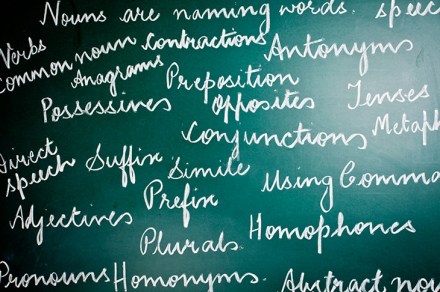How to kill the English language
Probably, most of you will have only the dimmest idea what a ‘fronted adverbial’ is. I used one in the last sentence. Can you spot it? Very good. Those among you who did are either a) professional linguists, b) seven-year-olds, or c) are, like me, recovering from several long months of home-schooling a seven-year-old. Forgive me if in mentioning it I retraumatise members of category c). ‘Fronted adverbials’ have become something of a cause célèbre among the parents of primary school children. They even occasioned a prime ministerial joke, interpreted in some quarters as a dig at a certain former education secretary, about ‘every detail of the syllabus, from fronted





